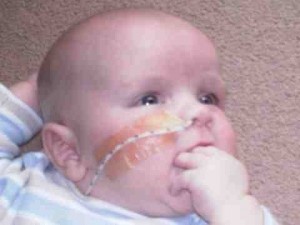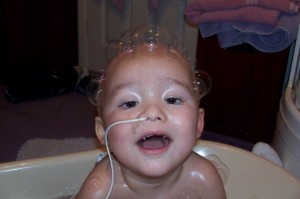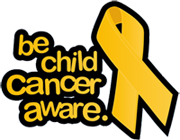Signs of Childhood Cancer
Continued, unexplained weight loss
Headaches, often with early morning vomiting
Increased swelling or persistent pain in bones, joints, back, or legs
Lump or mass, especially in the abdomen, neck, chest, pelvis, or armpits
Development of excessive bruising, bleeding, or rash
Constant infections
A whitish colour behind the pupil
Nausea which persists or vomiting without nausea
Constant tiredness or noticeable paleness
Eye or vision changes which occur suddenly and persist
Recurrent or persistent fevers of unknown origin
Observe your child for any sudden, persistent changes in health or behaviour as listed above. Since most of the symptoms of cancer can also be attributed to other conditions, the diagnosis of cancer can be a long process. You must trust your own instinct and work as a team with your doctor, using your knowledge of your child and your doctor’s knowledge of medicine to protect your child’s health.
How will I know if my child has some form of cancer?
Firstly, try not to panic. Closely monitor the symptoms and try and calmly judge how severe each symptom is. Were any of the symptoms just a one off, or are they prolonged and gradually getting worse? Just because your child is experiencing one or some of these symptoms doesn’t automatically mean they have cancer. A child can have a fever or vomit in an isolated incident, for many reasons; however, if it lasts more than 14 days and you don’t have a clear reason why, you should seek advice from your GP. A Fullblood count can be requested to screen for cancer, and other tests can be performed also!
Other common symptoms that might alert you that your child might have cancer:
Very decreased activity
Loss of appetite
Easy bleeding
Bruising or a red pinpoint rash
Rapid visual changes
Enlarged liver or spleen
Weight loss.
Weight loss is a big indicator that something serious might be going on with your child. It is not common for youngsters to lose weight over any length of time. If your child has suffered from flu or a virus in their gut, it is common for them to lose a small amount of weight. This however would be quickly regained once the child has recovered.
 If your child has swollen glands, this can often cause parents worry and concern, especially if it persists. This is very common/normal in younger children. In a child that has cancer, swollen glands lasting more than a couple of weeks would be a symptom, however they would also be alongside other symptoms such as swollen glands in more than one area of the body, weight loss, vomiting. They wouldn’t be expected as an isolated symptom.
If your child has swollen glands, this can often cause parents worry and concern, especially if it persists. This is very common/normal in younger children. In a child that has cancer, swollen glands lasting more than a couple of weeks would be a symptom, however they would also be alongside other symptoms such as swollen glands in more than one area of the body, weight loss, vomiting. They wouldn’t be expected as an isolated symptom.
In older teens however, swollen glands aren’t as common and not considered “normal”. This could be an indicator of lymphoma.
Indicators that might suggest childhood cancer are:
- Vomiting: if this lasts for more than 7 days and is worse upon waking in the morning, it disturbs your child in the evening when they are trying to sleep, or is associated with a headache. Children commonly suffer with headaches, however, if the headaches persist and worsen over time could be a red warning light that it might be something more serious than a simple migraine. If your child also displays other neurological symptoms such as trouble walking, seizures or sudden changes in their personality, could indicate a Brain Tumour.
- Bone and Muscle Pain: If your child is suffering pains in their bones or muscles, which isn’t eased by a warm bath or massage (as regular growing pains would) and hasn’t been caused by a specific injury. Growing pains are something which usually occur at night time and don’t affect a particular area of the body, they are a generalised pain, they also don’t tend to hinder your child in their daily activities. One thing to note is younger children don’t commonly suffer from chronic pains in their back, so this can be an indicator of a tumour on the spinal cord.
- Coughing or Laboured breathing: If your child has a constant cough or is having trouble breathing and is not responding to regular treatments for infection or asthma
- An enlarged mass: If your child has an enlarged mass in the arms, legs, neck or abdominal area.
We would always advise a visit to the GP for any symptom that persists over a period of time, even for a swollen gland as it could be an indication of other infections.
Talking to Your Paediatrician About Cancer
If you are concerned that your child has cancer, talk to your GP about your concerns. They may be able to alleviate those concerns with some simple tests and examinations, however if you are still not satisfied that it has been investigated thoroughly, you are within your rights to ask for a second opinion. You know you child!!
Please also refer to the NICE guidelines for GP’s – Page 42 onwards
NICE Guidelines for Cancer Referral
Information Source – With the kind permission of Patty Feist and Andrew Whittaker GP. We are very grateful to Patty and Andrew to their help and support in allowing us to publish this information. Please visit the Ped-Onc Resource Centre for more information.


